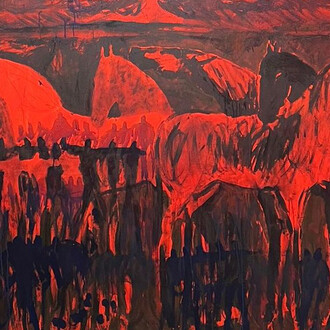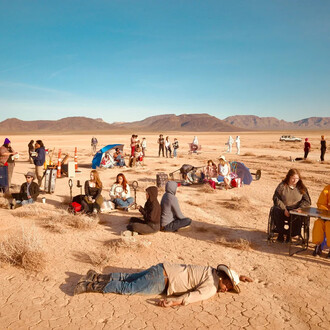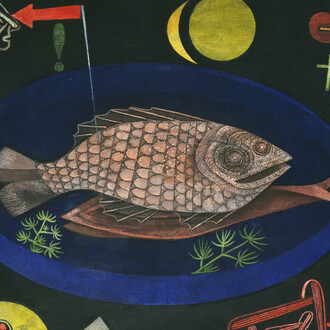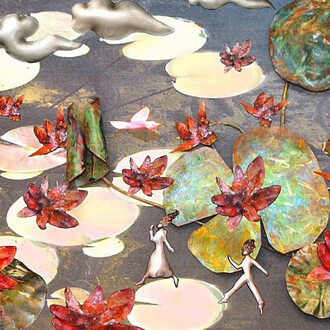On October 22, 1953, Joseph Cornell wrote at the top of a page in his diary: "Juan Gris / Janis Yesterday." The annotation referred to the previous day's outing, when, on one of his frequent trips to the gallery district in midtown Manhattan, Cornell visited the Sidney Janis Gallery on East 57th Street. Among a presentation of approximately 30 works by modern artists, one alone captivated Cornell—Juan Gris's celebrated collage The Man at the Café (1914), which is now a promised gift to the Museum as part of the Leonard A. Lauder Cubist Collection.
This shadowy profile of a fedora-topped man immediately inspired Cornell to begin a new series: some 18 boxes, two collages, and one sand tray created in homage to Juan Gris, whom he called a "warm fraternal spirit." Completed over a period of 15 years, Cornell's series of Gris shadow boxes is more extensive in number than any other that the artist openly dedicated to one of his admired luminaries of stage, screen, literature, or the visual arts. The main protagonist of Cornell's Juan Gris series is a bird—the great, white-crested cockatoo—specifically, an image taken from a 19th-century print of the species that Cornell repeatedly used in photostats, silhouettes, and hollow cuts of the bird's form to explore the fascinating shadows that Gris produced in his own practice.
At The Met, the exhibition Birds of a Feather: Joseph Cornell's Homage to Juan Gris reunites for the first time nearly a dozen boxes from Cornell's Gris series together with the Cubist masterpiece, The Man at the Café.
















